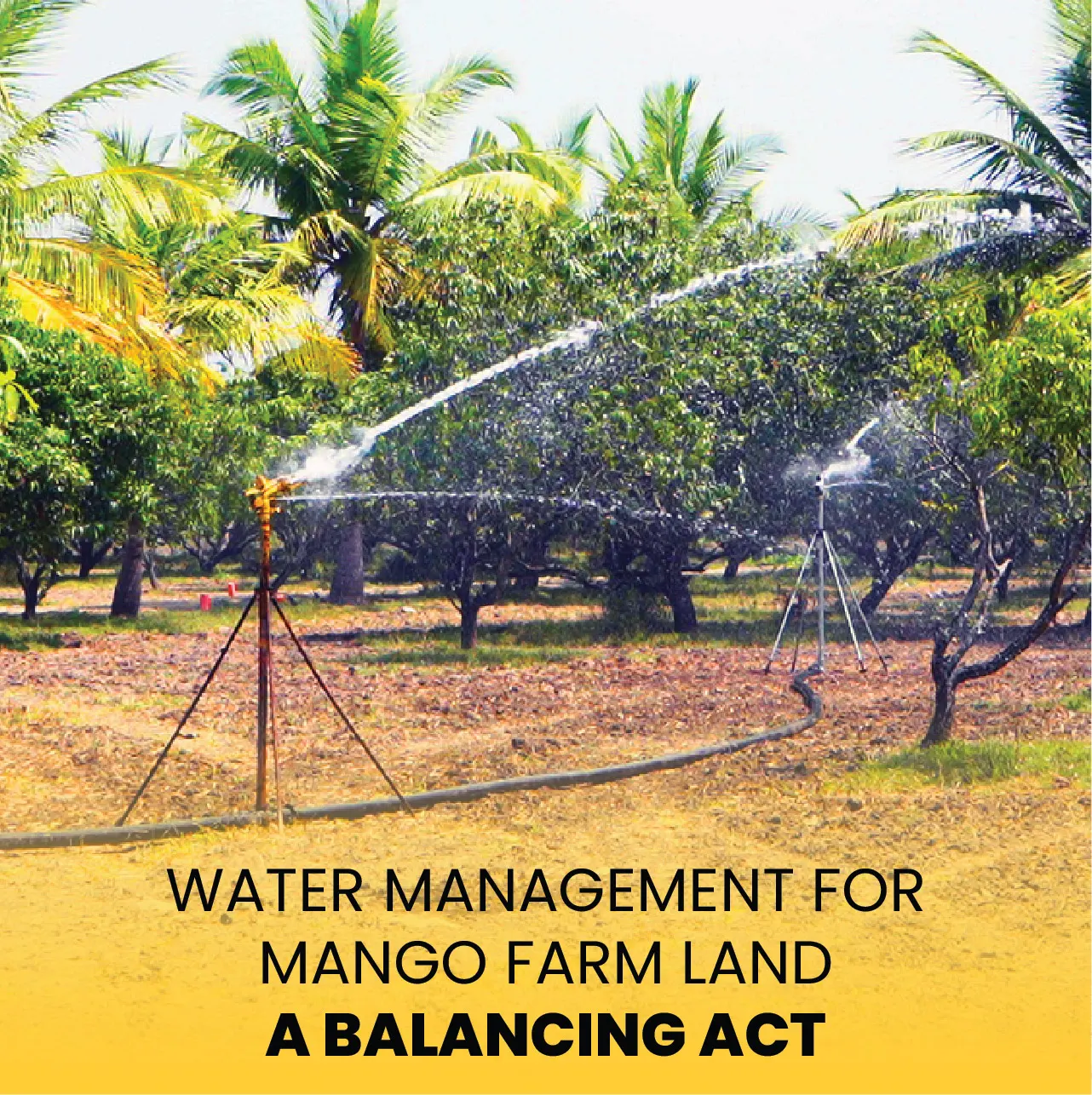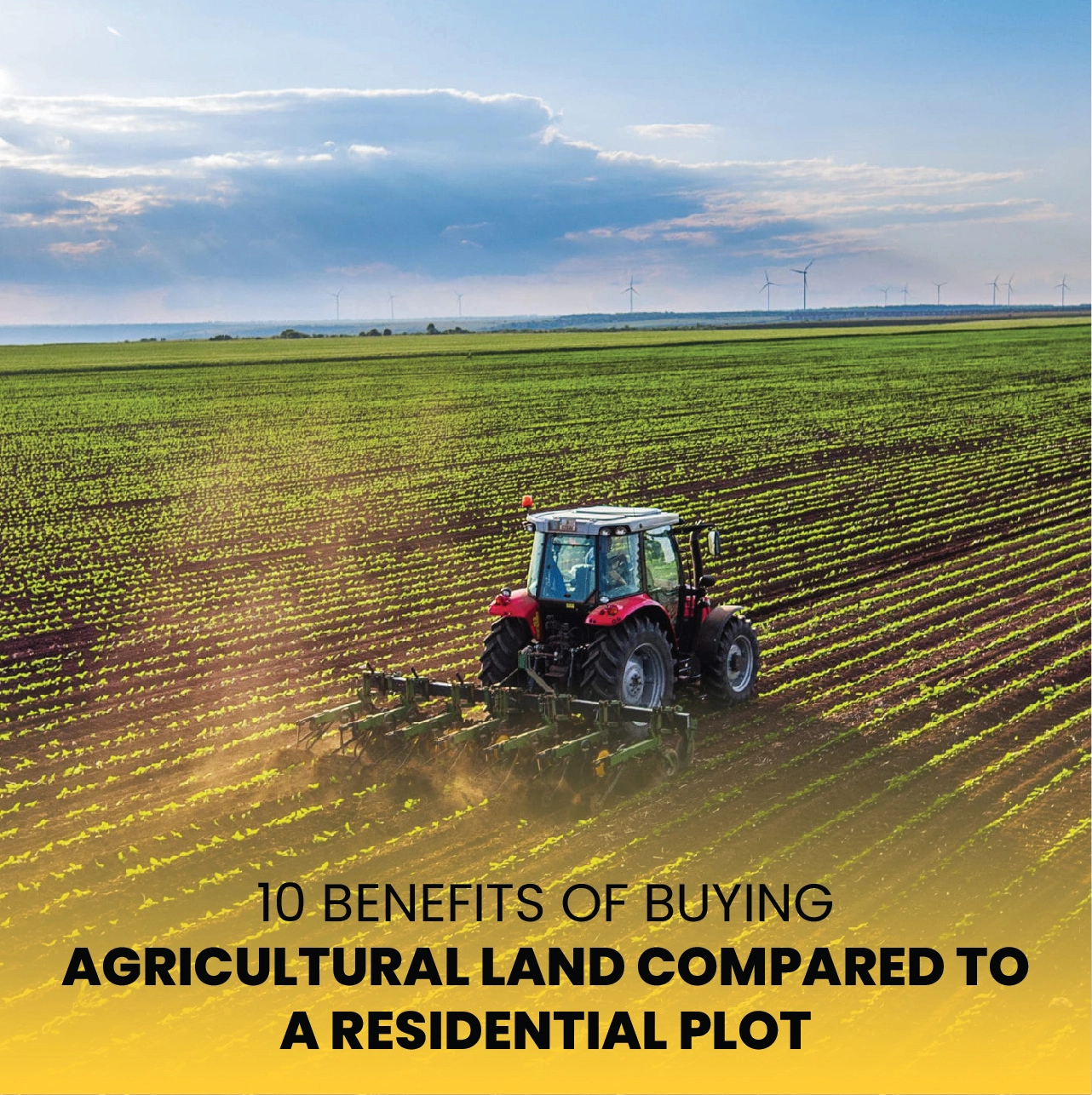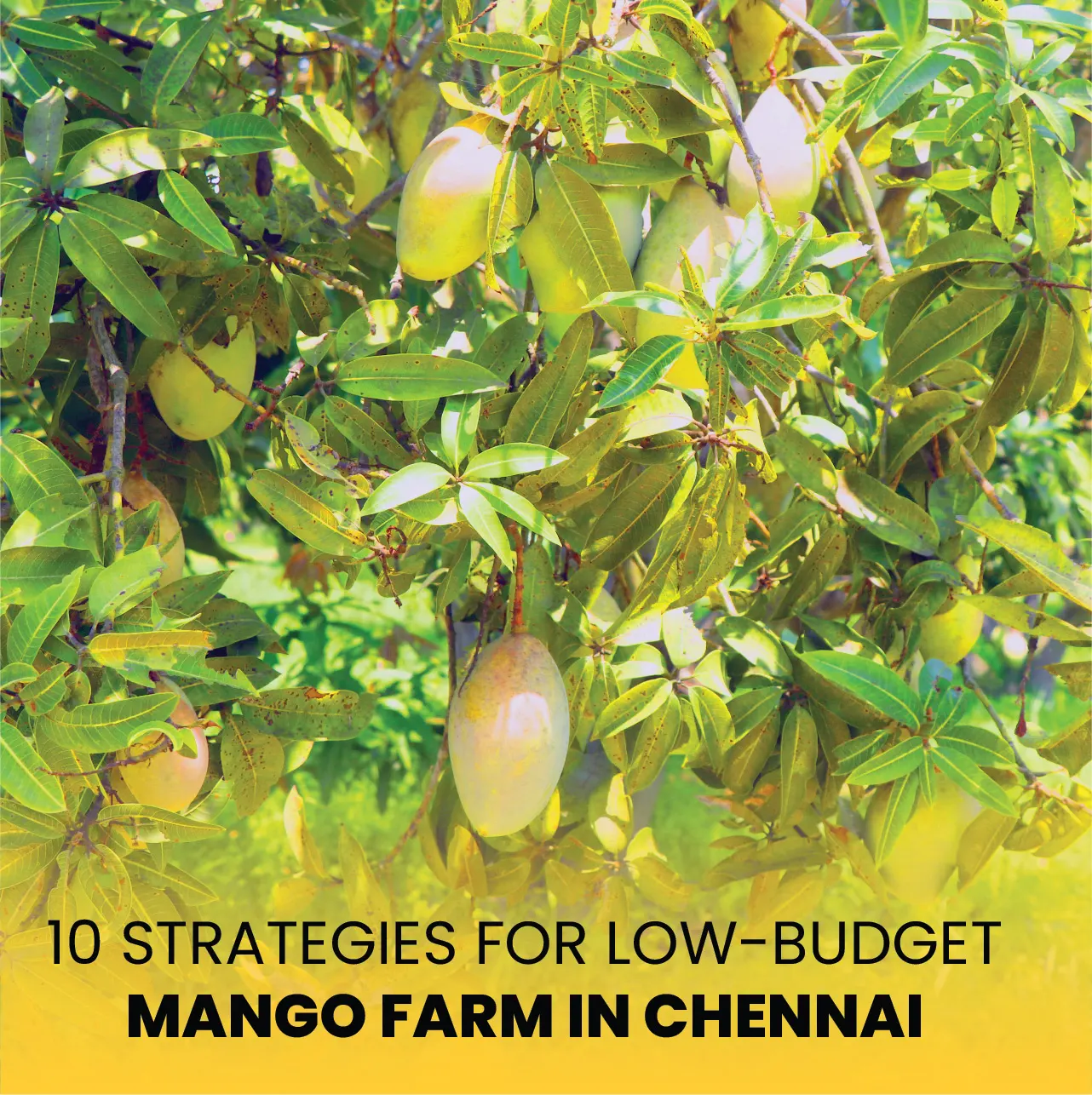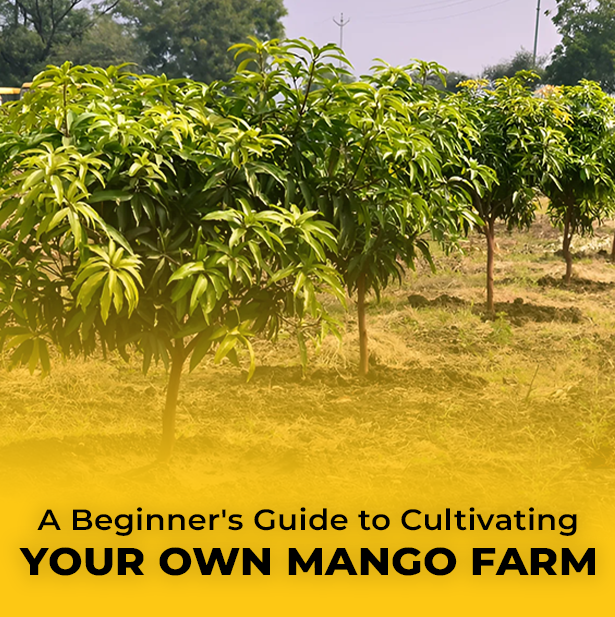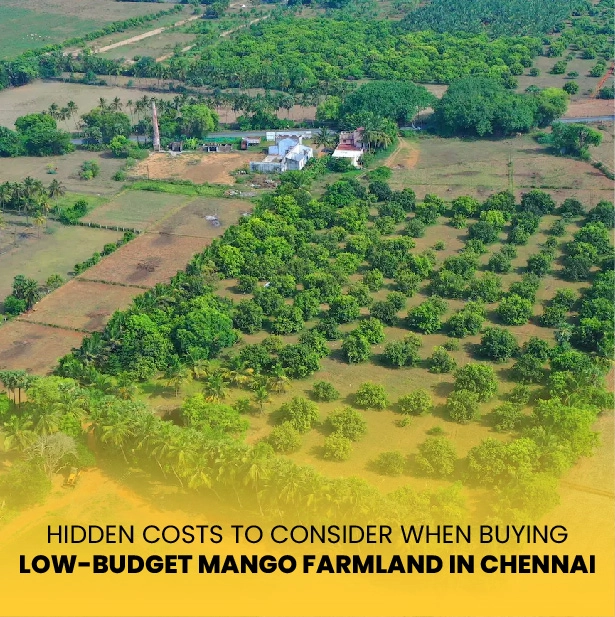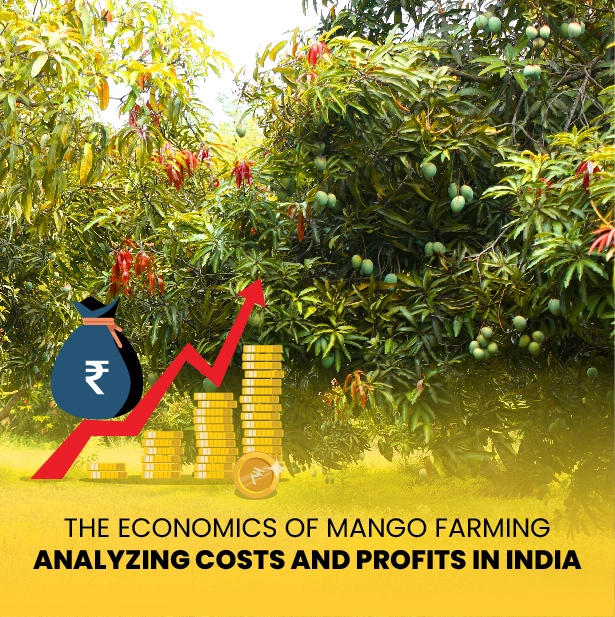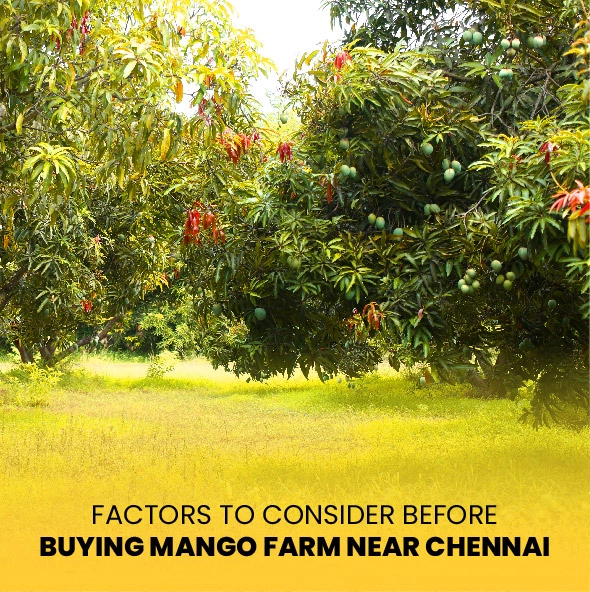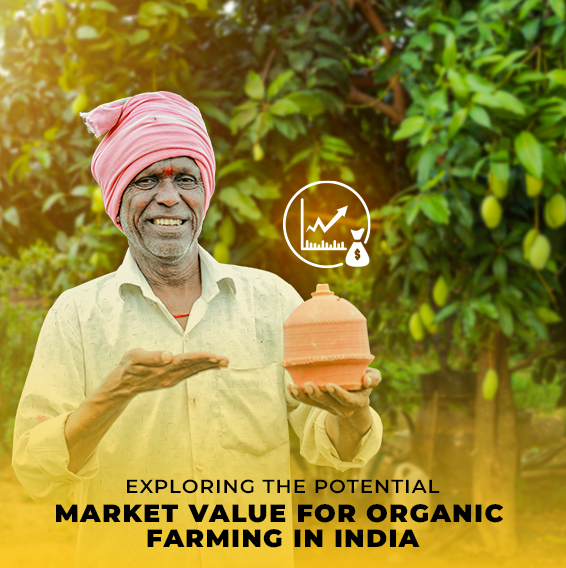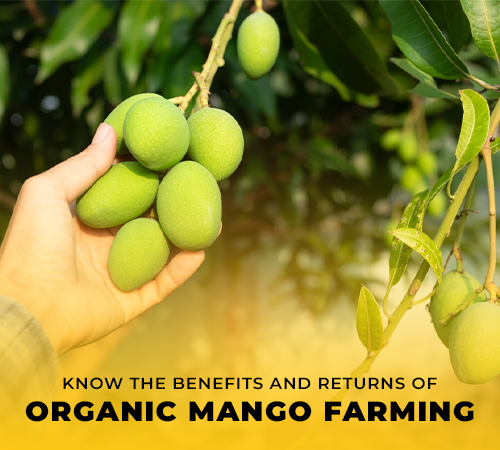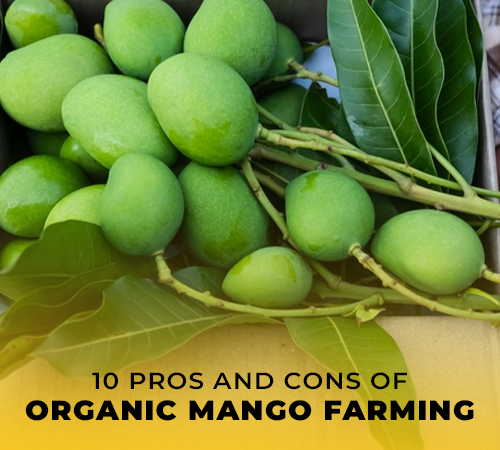Have you ever considered what the best use of agricultural farmland in India could be, other than conventional farming? We're here to investigate several solutions to this intriguing subject. Let's explore a few creative solutions that will maximize these areas for the benefit of the environment and ourselves. Continue reading to learn how to make the most of our agricultural areas!

While in India farming is still the main and best use of agricultural land, looking into other applications can lead to new chances and advantages. Examining some innovative and successful concepts:
Converting farmland into ecotourism locations presents a great chance to combine economic gain with environmental preservation. Building eco-friendly lodgings like cabins or tents; creating nature paths and bird-watching locations; and offering educational tours on sustainable farming methods are all possible eco-tourism endeavors. Additionally available are seminars on organic farming, environmental education, and sustainable living. This increases job development and local community involvement while also raising a consistent revenue from tourism and hospitality services.
Growing a food processing facility on agricultural land property can greatly increase the raw produce's worth. Among these is processing fruits, vegetables, and grains into pickles, jams, sauces, and snacks. Both domestic and international markets might be drawn in by eye-catching packaging and powerful branding. Setting up can be made easier by using financial assistance and government programs. Food processing gives agricultural products value by increasing their shelf life and lowering post-harvest losses, which raises income and creates jobs in rural regions.
Starting a plant nursery may be a profitable endeavor. Growing a wide range of plants is part of it; these include native species, fruit trees, decorative shrubs, and floral plants. To guarantee the nursery develops plants in high demand, market research is carried out to determine local demand and trends. Workshops on gardening advice and plant maintenance can draw in and keep clients. This gives a consistent stream of revenue, meets the landscaping and gardening needs of the community, and by growing native species, it enhances biodiversity.
To provide guests a farm experience, agrotourism blends tourism with agriculture. Guided farm tours, practical farming tasks including planting and harvesting, organizing farm-to-table dining events, culinary lessons and food samples are all possible activities. This broadens sources of income, improves public knowledge of agricultural land, and gives guests unforgettable experiences.
Learning about agriculture and sustainability is done practically on educational farms. Urban and rural communities are forged through joint ventures with schools to provide field trips and educational tours, courses on organic farming and sustainable techniques, and family and community-based initiatives. In addition to promoting sustainable practices and community involvement, this informs the public about agriculture.
Together with promoting local food security, community gardens may unite people. This covers giving people or organizations plots to cultivate their own food, providing gardening resources and classes, and holding gatherings and events for the community. In addition to giving people access to fresh vegetables, this encourages sustainable living.
Production of renewable resources on agricultural land can help with sustainability. This includes planting solar panels to provide renewable energy, growing energy crops like switchgrass or miscanthus for bioenergy production, and putting up biogas plants to turn organic waste into electricity. This offers sustainable energy sources, lessens dependence on fossil fuels, and through energy output, increases revenue.
Working with research organizations to establish areas for agricultural innovation helps progress farming techniques. This entails creating and showcasing sustainable farming practices, establishing experimental farms to evaluate novel crop types and processes, and collaborating on projects with academic institutions. This offers educational chances, progresses agricultural research and innovation, and helps to develop sustainable agriculture.
Growing aromatic and therapeutic plants can satisfy needs in a number of sectors. Grown therapeutic herbs like turmeric, ashwagandha, and tulsi; grown fragrant plants like lavender, rosemary, and lemongrass; and produced value-added goods like herbal teas, essential oils, and natural cosmetics. In addition to promoting natural and sustainable products, this diversifies farm income and helps the health and wellness sector.
Land utilization and water efficiency can be maximized by putting hydroponic or aquaponic systems into place. This covers putting up hydroponic systems to grow plants in nutrient-rich water solutions, merging aquaponic systems with fish farming, and monitoring and optimizing growth conditions with cutting edge technology. In addition to maximizing space and resource efficiency, this yields fresh, superior food while lowering water and environmental impact.
Using agriculture land in India for purposes other than traditional farming offers numerous opportunities for community development, environmental sustainability, and economic progress. Creative endeavours such as eco-tourism, food processing units, nurseries, agrotourism, educational farms, community gardens, renewable resource production, research and innovation centres, medicinal and aromatic plant cultivation, and hydroponics and aquaponics facilities can yield diverse advantages. These blogs encourage sustainable practices, education, and conservation in addition to providing landowners with extra revenue streams. India can make the most of its agricultural areas by adopting these clever tactics, guaranteeing that these lands continue to be vital to the country's prosperity and that they also improve the environment and the health of its citizens.



